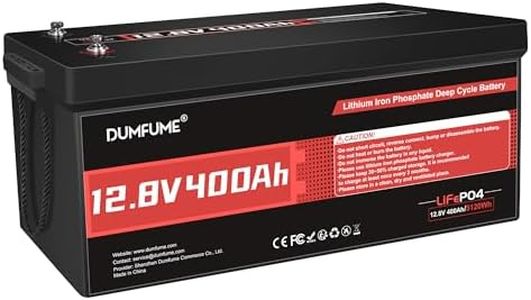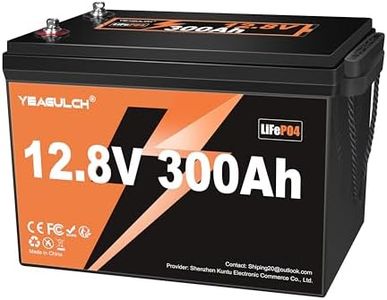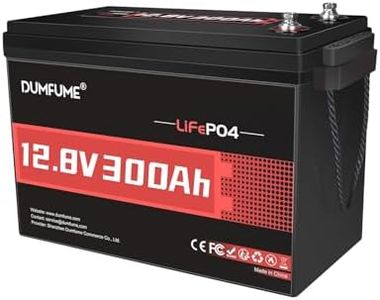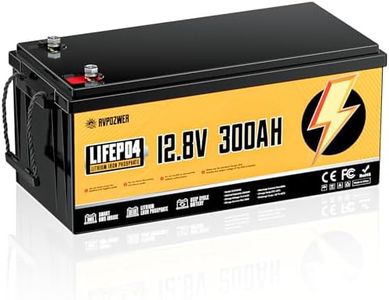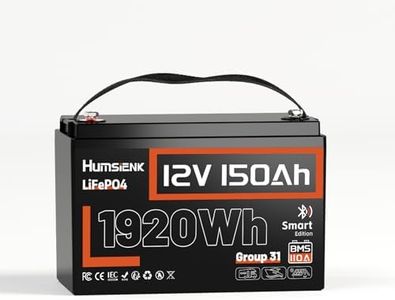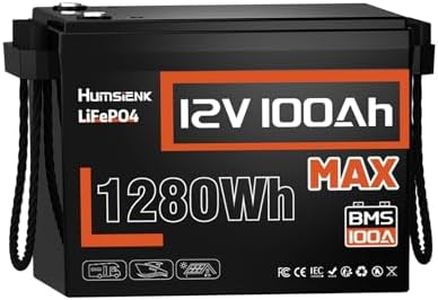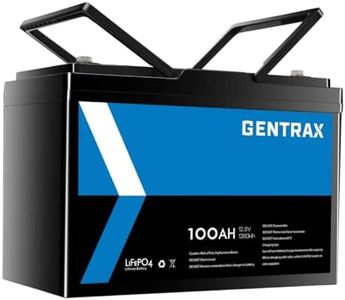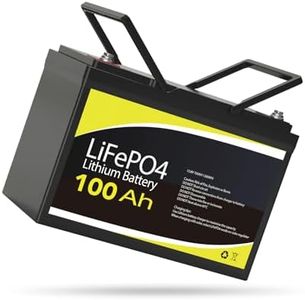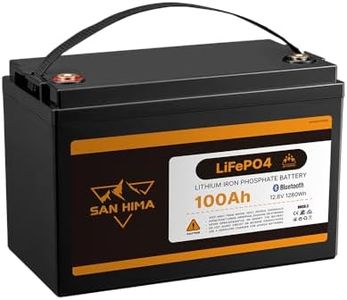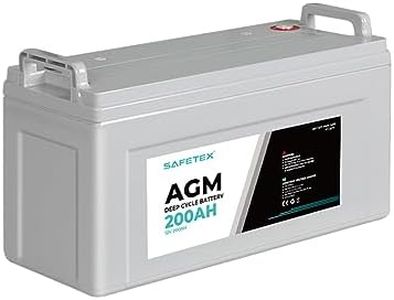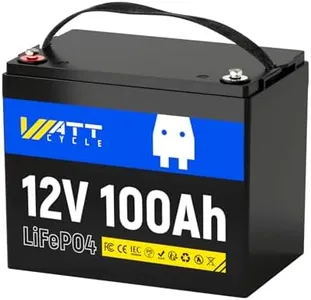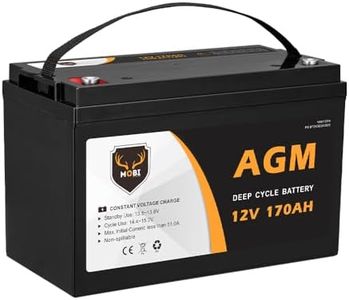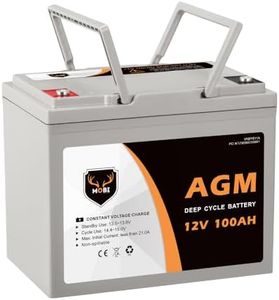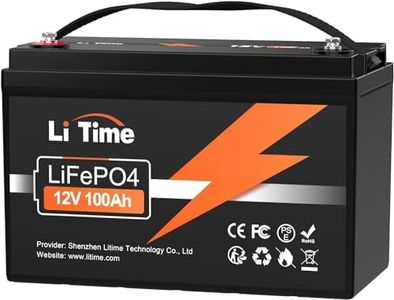We Use CookiesWe use cookies to enhance the security, performance,
functionality and for analytical and promotional activities. By continuing to browse this site you
are agreeing to our privacy policy
10 Best Rv House Batteries
From leading brands and best sellers available on the web.By clicking on a link to a third party's website, log data is shared with that third party.
Buying Guide for the Best Rv House Batteries
Choosing the right RV house battery is crucial for enjoying your adventures without interruptions and keeping your appliances running smoothly off-grid. House batteries are different from the engine-start batteries—they’re designed to provide steady power over longer periods for things like lights, fans, water pumps, or even small appliances. Making the right choice depends on how you plan to use your RV, your typical travel style (weekends or full-time living), and how much electrical demand you have when not plugged into shore power.Battery ChemistryBattery chemistry refers to the materials and technology inside the battery that store and release energy. The main types for RVs are flooded lead-acid, AGM (Absorbed Glass Mat), Gel, and Lithium Iron Phosphate. Lead-acid batteries are traditional and affordable but require regular maintenance and can’t be deeply discharged too often. AGM and Gel are sealed, maintenance-free, and better for deep-cycling, but they can be heavier and pricier than flooded batteries. Lithium batteries are more expensive up front but offer much longer life, deeper charging, higher efficiency, and low weight. Pick a battery chemistry based on your willingness for maintenance, budget for future replacements, and how much you rely on off-grid power.
Capacity (Amp-Hours, or Ah)Capacity measures how much total energy the battery can store and is expressed in Amp-Hours (Ah). The higher the Ah rating, the more electricity it can provide before needing a recharge. For occasional weekend use with low electrical demands, a lower capacity may work fine. If you plan to dry camp for days at a time or power energy-hungry devices, go for higher capacity batteries or even a bank of batteries. It's crucial to accurately estimate your daily power needs (add up the usage in Ah of your devices) to avoid running out of power overnight.
VoltageMost RV house batteries are 12 volts, but some systems use two 6-volt batteries wired in series for higher capacity or more efficiency. The voltage must match your RV's electrical system. Always check your RV's requirements—using the wrong voltage can cause serious problems. Stick with the standard voltage your camper is built for, unless you’re rewiring or upgrading your entire setup and know what you’re doing.
Discharge Depth (Depth of Discharge, or DoD)Depth of Discharge is how much of a battery’s total capacity you can safely use before recharging. Lead-acid batteries shouldn’t be discharged beyond 50%, or their lifespan will shorten. Lithium batteries, on the other hand, can be discharged up to 80-90% without damage. Consider this when comparing batteries: even if two have the same Ah rating, the usable energy may be quite different based on their DoD. If you want to use as much of your battery’s energy as possible, or rarely have time to recharge, batteries with a higher allowable DoD are the better fit.
Cycle LifeCycle life refers to how many times a battery can be charged and discharged before its capacity drops significantly. The tougher the battery, the longer it will last—this varies a lot between battery types. Traditional lead-acid batteries might last a few hundred cycles, while lithium options can last several thousand. If you use your RV often and deeply discharge your batteries, look for a high cycle life to save time and hassle on replacements.
Maintenance RequirementsSome types of batteries require you to check fluid levels and top up with water regularly—these are usually flooded lead-acid. AGM, Gel, and Lithium types are sealed and don't require any maintenance. If you want peace of mind and less work, go for maintenance-free types. However, if you don’t mind a bit of hands-on care and want a more affordable up-front cost, traditional flooded batteries can still be a good fit.
Weight and SizeBatteries can be quite heavy and bulky, which is important to consider with limited RV storage and weight allowance. Lithium batteries are much lighter for the same capacity, while lead-acids are heavier and larger. If carrying weight is a concern or you have limited space for a battery box, focus on the physical size and weight specification of any battery you’re considering.
